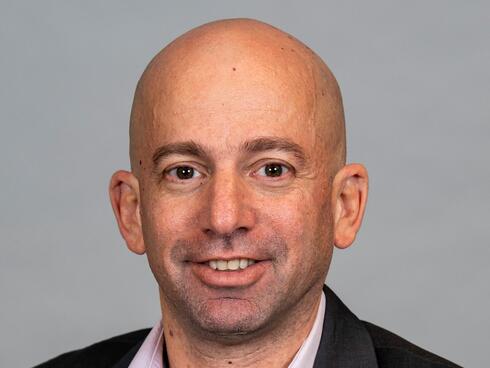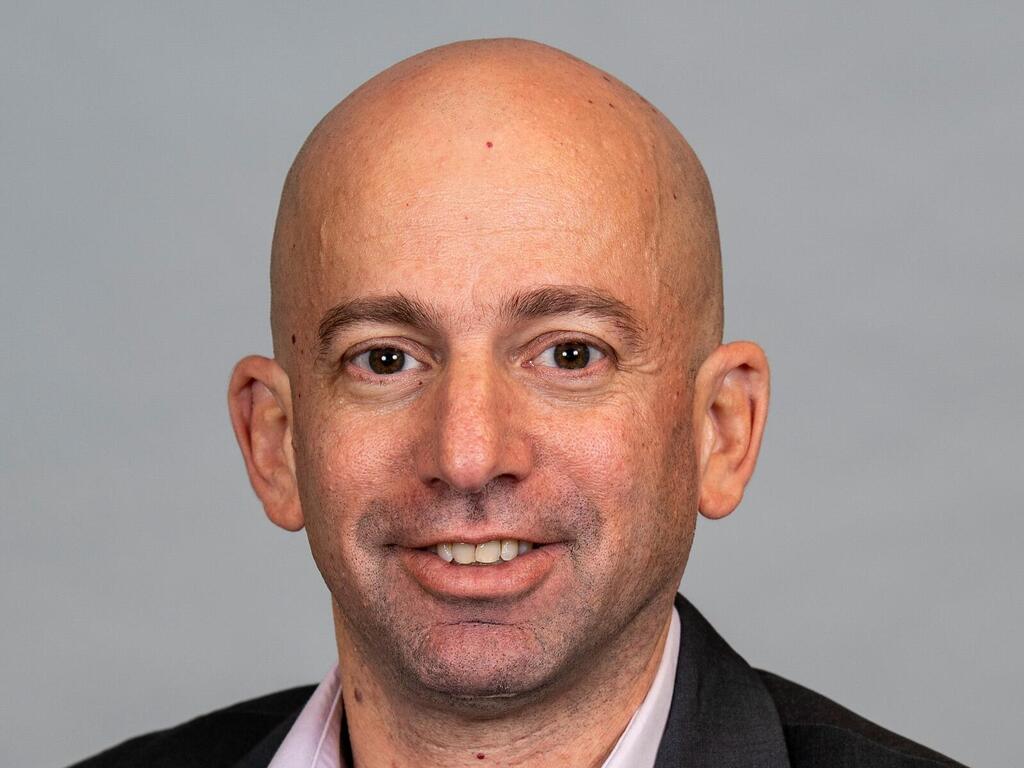
2025 VC Survey
“The pendulum will start swinging back toward more funding in the early stages,” predicts ARC Innovation Center
Avner Halperin, Deputy Director of ARC and CEO of Sheba Impact, spoke to CTech as part of its 2025 VC Survey.
“It is tough to predict the impact of the new incoming US administration. Israeli companies should also explore European and Asian markets for IPO opportunities,” said Avner Halperin, Deputy Director of ARC and CEO of Sheba Impact. “After several tough years for early-stage startups, we expect that the pendulum will start swinging back toward more funding in the early stages.”
Halperin joined CTech for its annual 2025 VC Survey where prominent investors and VC funds explore predictions for the year ahead, while contemplating the impact of the year before.
“In Israel, the number of new startups has gone down year over year and we need to see more early-stage startups funded and supported to sustain a vibrant tech ecosystem,” he added.
You can catch the whole interview below.
Fund ID
Name of fund/funds: ARC Innovation Center collaborates as a strategic partner with multiple venture capital funds focused on medical innovation for pre-seed, seed and round A stages.
Total sum of the fund: The total sum of the funds with whom ARC partners is $140M
Partners: ARC collaborates with prominent funds, hospitals, academic institutions, and global health-tech companies to support startups. Key partners include: Mayo Clinic, Cedar Sinai, Charite, HCA, and additional medical centers on the provider side, Microsoft and Merk as key global technology providers, and General Catalyst, Triventures, and Shoni on the VC side
Notable/select portfolio companies (active): AIDOC, AISAP, Customed, Sanoculis, Starget, Append, Synchrony, etc.
Notable exits: Belkin Vision - $466M, Innovalve - $300M
2024 is almost over. How can you summarize it in terms of the Israeli high-tech industry?
2024 was a turbulent year with significant challenges, but with some surprising success stories. The Medical Device sector saw exits totaling over $2 billion, and at Sheba, we saw an acceleration in the pace of creating new medtech startups. We created 20 new startup companies all based on patents developed organically within Sheba and enlarged our startup ecosystem to 110 startups. Despite the challenges of the ongoing war, we found that our medical companies are able to raise funding and achieve notable global milestones. Examples are the exits of Belkin Vision (in collaboration with Tel Aviv University and RAD Biomed) and Innovalve, in addition the FDA clearance by AISAP, and an additional 35 of ARC startups that won prestigious awards.
Looking ahead to 2025 - What challenges and opportunities await the Israeli high-tech sector in the coming year, and how are you, as investors, preparing for them?
The major short/midterm challenge that we face is the integration of AI into every area of Israeli hi-tech: Medtech, Cyber, Gaming, Enterprise software, etc. The longer-term challenge is the Israeli education system which has been falling behind in its quality based on international testing. This is crucial for Israel's long-term competitive advantage. Israel's technological advantage has always been in integrating between different technology spheres and connecting AI to other platforms is a unique opportunity. AI is what we call a General Purpose Technology that can affect an entire economy and drastically alter societies. We can't miss this unique opportunity to lead.
How will new American leadership affect the global high-tech industry or economy? And where does this place Israel and its entrepreneurs?
The new American leadership will be focused on globally promoting its biggest tech players ("the Trillion $ club"). The US will push for less regulation, and less anti-trust activity by government agencies, while possibly pushing for protective tariffs against China, Mexico, and potentially even Canada. This has the potential to bring the US and Israel closer together. For Israel, the US is the key source of investments and target market for products and this is likely to remain unchanged during the Trump administration. But Israeli tech should try to expand its reach to other potentially significant markets – e.g. India, Australia, and the Gulf States.
What are the three most important things the Israeli government should do today to accelerate the high-tech engine in the coming year?
- Strengthen the education system - education is the foundation for any progress in society and in the economy, recent indicators have shown that Israel is falling behind, we have to make teaching the most respected profession and leverage technology (AI) to give each student a personalized education program
- Invest in AI infrastructure – AI integration into every aspect of life is likely to become the key economic competitive advantage, we must have a national plan for accelerated integration of AI technologies in Israel
- Invest in integrating diverse populations into the tech sector: Arab, Ultra-Orthodox, and geographical periphery – Israel is not leveraging a significant percentage of its talent pool and generating significant inequality in the process. Investing in the periphery will have an outstanding ROI in economic and social terms.
Are there new sectors you see as relevant? Are there any fields you anticipate will weaken significantly in the coming year?
- Quantum computing is an important area to note – Israel has long been a leader in cybersecurity. Quantum computing can be a disruptive risk and opportunity for this field.
- Integration of healthtech with technologies from other sectors in Israel: defense, gaming, and AI – healthtech has always been a very conservative field in adopting new technologies. We see an exciting opportunity in "importing" deeptech from other fields into health-related applications. That will be crucial for our ability to ensure that our kids have as good as or better healthcare than we are getting (that is a tough challenge with the aging population).
Is Israel missing out on the AI revolution in the global arms race? If not, what should the local industry focus on to join the global race?
It is too early to tell. The Innovation Authority should make focused investments in supporting this field. Each vertical within the tech industry: medtech, defense, gaming, etc. should push for accelerated AI integration in a way that actually impacts outcomes and not just for marketing purposes.
Could the global IPO drought end in the coming year?
That is a definite possibility. It is tough to predict the impact of the new incoming US administration. Israeli companies should also explore European and Asian markets for IPO opportunities.
From an investor's perspective: will the coming year be better for early-stage startups or more mature companies?
After several tough years for early-stage startups, we expect that the pendulum will start swinging back toward more funding in the early stages. In Israel the number of new startups has gone down year over year and we need to see more early stage startups funded and supported to sustain a vibrant tech ecosystem.
Did you raise fund money in 2024 for an existing fund or a new one? What are your expectations regarding this matter for 2025?
We did not raise funding for our VC funds in 2024, but our venture creation activities raised funding for 17 new startups. We expect to raise funding for our VC funds in 2025.
How many investments did you make in 2024, and how does it compare to previous years?
We built 17 new companies which is 15% higher than last year.
Two notable companies that you think will thrive in 2025.
Company Name: CustoMed
Sector + description of the product/service: CustoMed (MedTech) is developing a platform that centralizes the design process for personalized surgical solutions (PSI), from surgical planning to precise execution.
Investment amount + total: $2.1 million, sourced from private investors and a grant from the Israel Innovation Authority.
Founding Year: 2023
Reasoning why this is their year: They have demonstrated groundbreaking capabilities through their activities at Sheba Medical Center, garnering significant global interest as a disruptive solution that seamlessly integrates surgical innovation, 3D printing, and artificial intelligence. This unique combination positions the company at the forefront of technological advancements in the medical field, offering transformative solutions that address critical challenges in modern surgery.
Company Name: AISAP
Sector + description of the product/service: AISAP (MedTech) provides every physician equipped with a portable ultrasound kit the ability to diagnose diseases and findings instantly during patient encounters, anywhere and anytime—from major medical centers to clinics in remote areas.
Investment amount + total: $13 million in a funding round led by Harel Insurance's investment fund, the digital health fund Shoni Health, and additional investors, including Tamir Pardo (former head of Mossad). This is alongside a grant of 2.5 million NIS from the Israel Innovation Authority.
Founding Year: 2022
Reasoning why this is their year: They have recently received FDA approval, supported by exceptionally strong clinical results, positioning them to confidently and effectively enter the market. With their proven technology and regulatory clearance, the company is well-prepared to make a significant impact and expand their reach in the healthcare sector.













